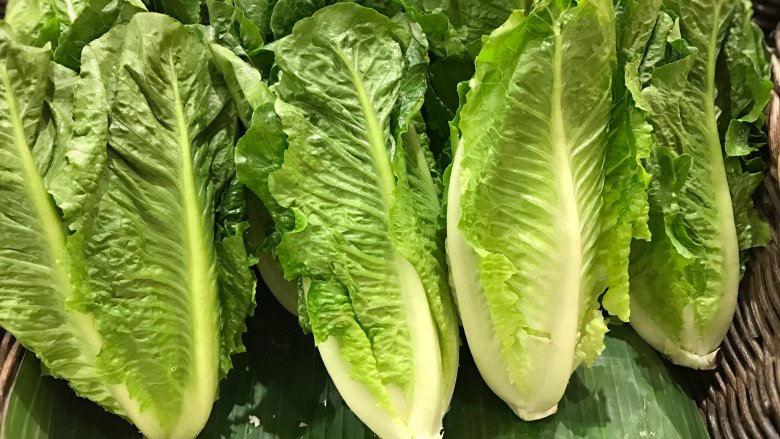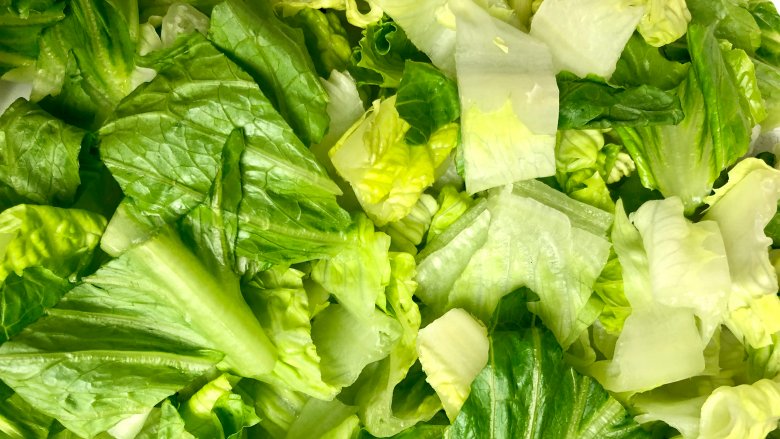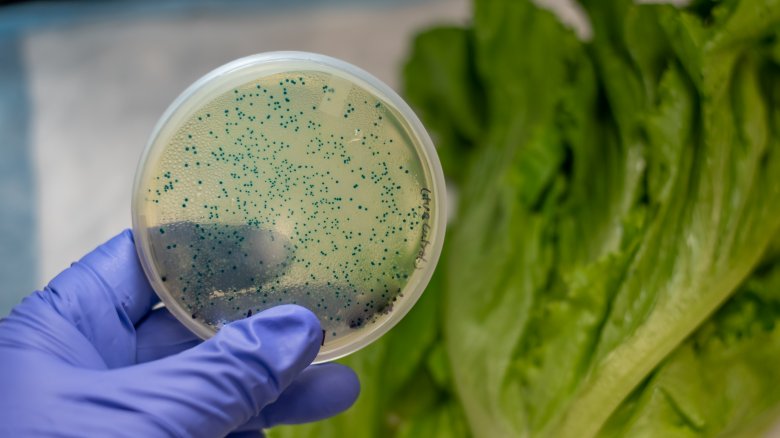The Real Reason Romaine Lettuce Recalls Keep Happening
Even the most health-obsessed adults can struggle with healthy eating, and food safety concerns don't make it any easier. After seeing yet another big FDA alert about your favorite bagged salad, you're probably wondering why romaine lettuce keeps getting recalled. What's the point of trying to eat more vegetables if it turns out they're just contaminated with life-threatening bacteria?
If it seems like every time you buy a fresh head of romaine you're facing yet another recall, it's not in your head. There are a couple of different reasons why it seems like romaine lettuce gets recalled more than the other foods we eat.
Why does romaine lettuce get recalled so often?
One of the reasons why romaine lettuce has been linked to so many cases of foodborne illness is the fact that it's usually eaten raw (via HuffPost). Since it's not cooked, it's never brought to a food-safe temperature where bacteria like E. coli and listeria can be killed. Combine that with the fact that the U.S. eats almost 7.67 billion pounds of lettuce each year and the probability that someone will get sick increases.
Another reason why romaine is so susceptible to recalls is the way it's processed. Much of the romaine that's get recalled is chopped romaine. Chopped, bagged romaine lettuce is usually made with lettuce from multiple farms. If even one head is contaminated, it can contaminate the entire batch once the lettuce is chopped and mixed together. Bill Marler, a food safety lawyer, even said, "I look at bagged salad like swimming in a public swimming pool with 500 people." Basically, buying a whole head of lettuce and washing it at home is far safer than buying pre-chopped bagged lettuce.
How to make romaine lettuce safe
If you don't want to give up romaine lettuce, there are a few different ways to keep yourself safe. First of all, make sure you check the FDA's recall list on a regular basis (via FDA).
You should also buy whole heads of lettuce instead of the bagged kind. Then, when you bring it home, submerge your lettuce in a solution consisting of 1 cup distilled white vinegar to 32 ounces of water. Let it soak for two minutes to kill the bacteria, then rinse it thoroughly with tap water before using it.
Follow these steps to vastly reduce your chances of ingesting the lingering residues and bacteria on the lettuce you get at the store.


